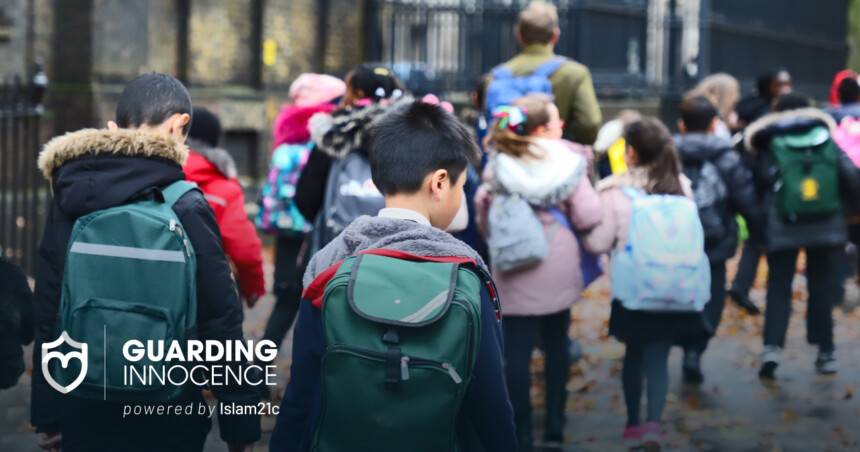Your non-negotiables (know these first)
Here are some fundamental points that will shape the rest of this guidance piece.
- Primary sex education: headteachers must grant withdrawal if primary schools teach any sex education classes.
- Schools must consult parents before the RSE policy is reviewed, they must be transparent about what they teach; such content must be age-appropriate, faith-sensitive, and use unbiased resources.
- You can view all the Relationships, Sex (and Health) Education (RSE/RSHE) materials and resources your child will see; schools must show you all materials on request, to the extent that they should provide take-home copies if you can’t view them in person.
- Secondary sex education: until the age of 15, you can withdraw your child from this element of RSHE; headteachers may refuse only in exceptional circumstances (e.g. specific safeguarding risks or children in care). At 15, your child decides whether to remain withdrawn or not.
Statutory vs. optional
This section will help you to know where to push.
Primary
- Relationships Education is statutory.
- Sex education is non-statutory and parents can withdraw.
- Science: body parts (basic — not sexual organs), animal/human growth; puberty is covered, but “how a baby is made” is not required.
- Same-sex families/”LGBTQ” topics are not required in primary; if included, they must be factual and age-appropriate (you can ask to delay/remove these topics).
- Naming sexual body parts becomes statutory in Health Education from September 2026, but no year group is specified. Parents can argue for teaching in later years (e.g. Y3–Y4). [1]
Secondary
- RSHE is statutory.
- “LGBTQ” content must be covered factually — you can challenge the tone/balance, but not its existence.
Three levels of action
Choose from what you can fit into your busy schedule, remember that even one level of action can make a big difference.
Protector
Withdraw from sex education (primary + secondary).
Use one of our short scripts at the end of this page, and ask to be kept informed about what is taught and when, so you can ensure you can discuss with your child from an Islamic perspective.
Guide
Ask informed questions to encourage schools to reflect their practice.
Asking questions encourages schools to introspectively ask,
Why are we doing this in the way we’re doing it?”
Advocate
Influence changes to the RSE policy (the biggest lever) during a policy review cycle.
Get the review date, request to be involved in the consultation process, use this page to find the gaps that need to be plugged.
The engagement sequence
Be sure to do these in order, for maximum effect!
- Download the RSE policy, curriculum map, scheme of work; request to view all materials (including external provider slides).
- Request copies if you can’t attend the school/portal access isn’t available.
- Write to the headteacher with feedback about changes you would like to see to the resources/materials, ask questions about “LGBTQ” teaching, external organisations teaching RSE, etc. Use modified template letters.
- Ask precisely, about replacing a resource, moving a topic to a later year, ensuring neutral framing, or excluding optional primary “LGBTQ” content.
- Escalate, if a school does not respond appropriately or fobs you off. Consult the school’s complaint process for the exact procedure. It is usually: headteacher → chair of governors → local authority (non-academy school) or DfE for an academy). Keep a paper trail.
Top focus areas to scrutinise (primary)
- Transgender content (not a statutory requirement; challenge contested beliefs and stereotyping).
- Sexual body-part vocabulary (push to later years; challenge “safeguarding” claims if premature).
- Same-sex families (remember, this is optional at primary; ask why it’s included and how it’s framed).
- Sexual content in RE lessons (ensure it sits in non-statutory sex-ed → thus, withdrawal can be applied).
What schools can & cannot do
Knowing the following key points can save you (and the school) a lot of time when tackling this topic.
CAN
- replace explicit resources
- change year-group sequencing
- exclude optional primary “LGBTQ” content
- change resources/materials used to teach statutory topics
- run genuine parent consultation, including reaching out to parents before the RSE policy is reviewed.
CANNOT
- drop RE (primary)
- drop statutory RSE (secondary)
- skip statutory Health Education
- skip puberty changes in primary science
- omit factual “LGBTQ” content (secondary).
Questions for both primary & secondary schools
Curriculum content and delivery
- What materials does the school use when teaching RSE/RSHE?
Parental rights and involvement
The law requires schools to consult parents. These questions clarify how your rights are being respected.
- How can I withdraw my primary-aged child from sex education classes?
- How were parents consulted before selecting the current RSE materials?
- How can I withdraw my secondary-aged child from the sex education element of RSHE?
- How often is the RSE policy reviewed, and how are parents involved in the process?
- What is the process for ongoing consultation with parents on RSE topics and resources?
- How does the school facilitate parental requests to view RSE teaching materials and resources?
External influences and visitors
External groups often shape RSE delivery. Parents need to know who is influencing their children.
- What outside organisations advise or support the school’s RSE/RSHE programme?
- What vetting or criteria does the school use, when selecting external speakers for RSE/RSHE?
- What external groups are invited to deliver lessons or workshops on RSE/RSHE, “LGBTQ”, or related themes?
Religious and cultural sensitivity
The statutory guidance requires that schools are sensitive to the religious background of pupils. These questions safeguard your child’s identity and values:
- How does the school consider the religious background of pupils when designing and delivering RSE?
- How are different moral or faith-based perspectives acknowledged and respected during teaching?
Age-appropriateness and safeguarding
Parents have a right to know how schools prevent premature exposure to sensitive topics.
- How does the school ensure children are not exposed to information prematurely or beyond their developmental stage?
- If a pupil asks a question which is inappropriate for their age group or for discussion in the classroom, what is the school’s guidance for teachers on handling this?
- What criteria are used to decide which books (e.g. board books for early years, novels and sex education guides for older children) are included in classroom or library collections?
“Gender identity” and “social transition”
This is a highly sensitive area. Schools may go beyond what the law requires. Parents should be clear on the school’s stance.
- Does the school use or plan to introduce gender-neutral toilets?
- Does the school teach or promote the belief that some children are “born in the wrong body”?
- Does the school acknowledge the Cass Review’s conclusion that “social transition” is not a neutral act? [2]
- If a child stated they were “in the wrong body”, what would the school’s response be? What action would the school take?
- Does the school support or facilitate the “social transition” of pupils — e.g. changes to name, pronouns, uniform, toilets?
Your smartest questions for primary schools
Here are some primary school quick asks, consider picking two or three and sending these to your school.
Curriculum content and delivery
These questions ensure transparency about what is actually being taught, and when.
- Does the school teach about human reproduction in science lessons?
- Do you teach sex education lessons? If so, which year groups and during which school term?
- What materials does the school use when teaching Relationships and Health Education, and sex education?
- If you teach about same-sex families in Relationships Education, what steps were taken to arrive at this decision?
- Does the school include same-sex families when teaching about different types of families?
Strong questions for your secondary school
Similar to the above section, here are a couple of questions that you can send to your child’s secondary school.
Curriculum content and delivery
- How does the school ensure that different perspectives on same-sex relationships are presented fairly?
- What guidance is provided to teachers to ensure relationships teaching is objective, critical, and pluralistic, in line with the law?
If your child is exposed to inappropriate content
This is a very serious point: go straight to the headteacher.
When you have arranged a meeting with them, list specific item(s) and harms; request a follow-up meeting and cite policy/guidance.
If your concern remains unresolved, use the school’s formal complaints route (as mentioned above), then escalate.
Aim for policy change, not just a one-off fix. Remember, there may be many more who are affected.
Faith & fairness guard-rails (quote these often)
The guidance and advice that you have read so far has been based on the government’s latest statutory guidance (15 July 2025) for schools and their governance structures in regards to RSE/RSHE. [1]
Now, all of the below are provided verbatim and with specific page citations, so you can refer to them in discussions with your school.
Schools must proactively engage and consult parents when they develop and review their policy.” (p.4)
Where primary schools provide sex education, head teachers must automatically grant a request to withdraw a pupil from it.” (p.6)
Parents have the right to request that their child be withdrawn from some or all of sex education delivered as part of statutory RSE…
In secondary, head teachers can refuse a request in exceptional circumstances, for example because of safeguarding concerns or a pupil’s specific vulnerability.” (p.7)
Teaching should be age appropriate.” (p.8)
Schools should check that external resources are accurate, age, and stage appropriate and unbiased.” (p.33)
[Schools should ensure] parents are able to view all curriculum materials used to teach RSHE on request.” (p.34)
Where parents are unable to view materials via a ‘parent portal’, or cannot attend a presentation, schools can provide copies of materials to parents to take home, providing parents agree to a similar statement that they will not copy the content or share it further except as authorised under copyright law.” (p.34)
RSHE should be sensitive to the religious background of pupils.” (p.37)
Short scripts you can reuse
Viewing materials in school
Please confirm a time for me to view all RSHE materials, including any external-provider content.”
Viewing materials at home
In line with the requirements in the statutory RSE guidance, I would like copies of all RSHE materials to take home, including any external-provider content.”
Primary “LGBTQ” teaching
As this is not required at primary, please remove or delay. If you will not consider this, please provide the reason and ensure a factual, neutral approach.”
Transgender content
Please clarify where ‘gender identity’ teaching is taught; or if the school’s processes include social transition approaches.”
Source: Islam21c
Notes







